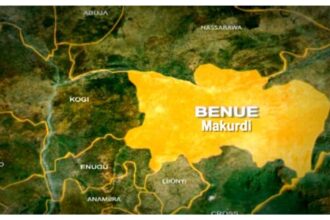...To get all news updates, Join our WhatsApp Group (Click Here)
Also Join our WhatsApp Channel (Click Here)
Tony Attah has assumed the role of Chief Executive Officer at Renaissance, a Nigerian consortium that acquired in a deal valued at $2.4 billion.
Africa Oil & Gas Report, an energy intelligence publication said Attah is the new managing director of the consortium expected to manage what used to be Shell’s 30 percent stake in the SPDC-JV comprising 18 Oil Mining Leases (OMLs) 20, 21, 22, 23, 25, 27, 28, 31, 32, 33, 35 36, 43, 45 and 46, all onshore, and OMLs 74, 77& 79, in shallow water, in the Niger Delta basin.
The consortium includes ND Western, Aradel Energy, First E&P, Waltersmith and Petrolin.
“Attah’s experience in gas monetization will come in handy in the new job. The bulk of the feedstock for the NLNG (in which Shell holds a 25.6% stake) had always been sourced from the SPDC assets that Shell has just divested. The largest among them include Gbaran Ubie, Soku, Bonny (onshore), and EA (shallow water). These fields will now be operated by Renaissance,” the energy publication said.
As Renaissance welcomes Tony Attah at the helm, the company is poised to navigate challenges and capitalize on growth opportunities in the dynamic landscape of Nigeria’s onshore business.
As managing director of NLNG Ltd between September 2016 and July 2021, Attah led the company to a Final Investment Decision (FID) on the $10 billion, Train 7 LNG plant, a project expected to increase NLNG’s current capacity by 35percent to 30MMTPA.
Tony Attah took the reins of NLNG Ltd, nine years after the last Liquefaction Plant (Train 6) came on stream. Before him, two Chief Executives had worked to get the Train 7 project off the ground, with some traction, but not visible success.
Prior to his previous role at Nigeria LNG Limited, he was the managing director and board chairman of Shell Nigeria E & P Company SNEPCo, Vice President HSE and Corporate Affairs, Vice President Human Resources (HR) as well as other technical & non-technical roles in Operations and major projects including being the head of Head of Joint Venture Economics in the commercial function.
Over a period of two decades, Tony Attah has also led multi-disciplinary teams across diverse cultures. He has been renowned for his strong strategic and commercial mind-set which is underpinned by a solid technical background and excellent leadership capabilities.
He holds a Bachelor degree in Mechanical Engineering from the University of Ibadan and a Master of Business Administration from the University of Benin. He is a member of Council for the Regulation of Engineering in Nigeria (COREN) and Society of Petroleum Engineers (SPE), and a fellow of the Nigerian Society of Engineers (NSE).
He has been renowned for his strong strategic and commercial mind-set which is underpinned by a solid technical background and excellent leadership capabilities. His goal in NLNG is to sustain the historical excellent performance, move the company to the next level and continue to make NLNG an inspiration to Nigeria.
You can get every of our news as soon as they drop on WhatsApp ...To get all news updates, Join our WhatsApp Group (Click Here)
Also Join our WhatsApp Channel (Click Here)












